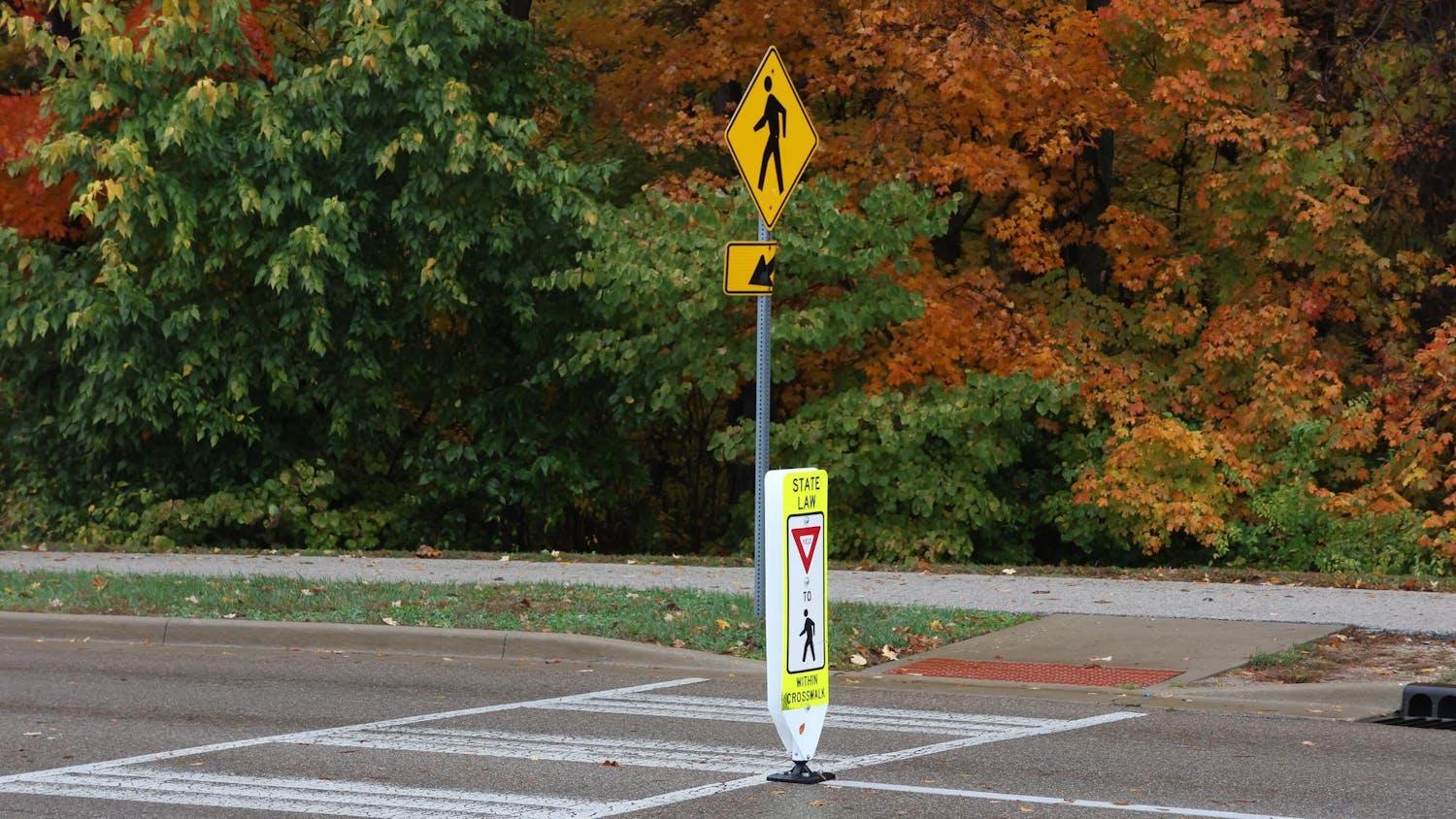The line outside Monroe County Election Central stretched 130 people long by midday Saturday as people waited to vote early.
People waiting anticipated receiving a red and blue “I voted” sticker and asked each other if they knew who to vote for in every local office. Some wondered whether their vote would matter, but felt it was their duty to cast a ballot anyway.
“It doesn’t hurt to do it,” IU freshman Clarence Lilley said.
In 2014, the most recent midterm election, there were 7,389 absentee votes submitted to Monroe County. Absentee voting include ballots from early walk-ins, mail-ins, overseas citizens and military members.
By Friday, Monroe County election supervisor Karen Wheeler said more than 22,000 ballots were cast.
“We’ve been slammed pretty hard,” Wheeler said.
Indiana ranked second to last for voter turnout among all 50 states and D.C. in the last midterm election in 2014, according to FairVote.
Wheeler said lines Saturday morning were already the longest since early voting began Oct. 10. Friday set a record of 1,530 votes cast in one day, and Wheeler said it appeared Saturday would set a record too.
A group of about 25 students marched from Dunn Meadow to the polls on Saturday as part of an early voting party with the student group Campus Action for Democracy. They held signs with sayings like “I am voting for my future!” and chanted as they marched down Kirkwood Avenue:
“When I say student, you say power!”
“Student!”
“Power!”
“Student!
“Power!”
Lilley and IU freshman Mylinh Tieu walked at the back of the march, ready to vote for their first times. Both are from Texas, but registered to vote in Bloomington.
“I’m going to be here for the next four years,” Lilley said. “I feel like having an impact on my direct environment is more important right now.”
Less than 9 percent of IU students voted in Bloomington in 2014, said Will Stauffer, an organizer with Campus Action for Democracy.
Wheeler ushered people back and forth in the crammed voting room at Monroe County Election Central on Saturday. She gestured with a handful of pens to pods encircled by red and blue curtains and made sure everyone had their proper materials.
“It’s kind of like being a traffic cop here,” Wheeler said.
Mary Christie, a third-year law student, stood in line with a light pink sweatshirt that read “I am a vital voice” printed in magenta.
Across the street, an early voting party organized by Campus Action for Democracy embellished a small coffee shop with red, white and blue balloons and star pennants.
Christie wanted to vote early so she could use her limited free time on Election Day – she has class until 4:30 p.m. — to encourage other students to vote.
Just under 20 percent of people ages 18 to 29 voted in 2014, according to the Center for Information and Research on Civic Learning and Engagement. This was the lowest youth voter turnout recorded in the past 40 years.
For Christie, the significance is even broader. Women in the United States have had the right to vote for just under 100 years. And there aren’t threats to voters in the U.S. like there are in some other countries.
“We don’t have to worry about fear,” Christie said. “So there isn’t really an excuse not to.”




